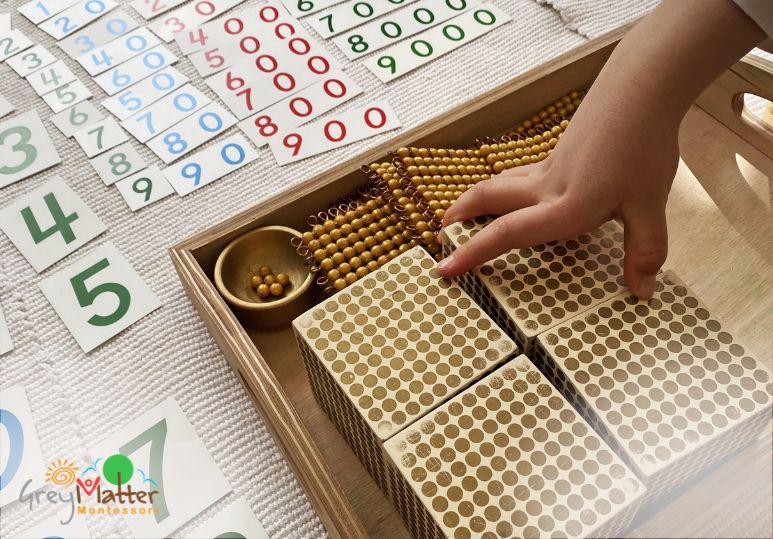Welcome to a world where learning extends far beyond the glow of screens, and the tactile magic of hands-on exploration takes center stage. In the realm of Montessori education, the philosophy transcends traditional norms by offering a unique approach to technology and early learning. Let's embark on a journey that unveils the intentional absence of screens in Montessori classrooms, discovering how this approach shapes the foundation of a child's educational journey.
The Montessori Landscape: A Screen-Free Sanctuary
In the bustling landscape of modern education, Montessori classrooms stand out as sanctuaries of simplicity. One notable distinction is the intentional absence of screens. Unlike traditional educational settings where digital devices often take center stage, Montessori environments embrace a screen-free ethos. Here, the emphasis is on tangible, hands-on learning materials that beckon children into a world of exploration.
Picture a classroom where children engage with wooden puzzles, colorful beads, and sensory-rich activities. It's a realm where the hum of curiosity fills the air, and the absence of screens fosters an environment conducive to focused, self-directed learning. This intentional choice is rooted in the Montessori philosophy, which prioritizes the development of foundational skills through direct interaction with the physical world.
Hands-On Mastery: The Montessori Materials Advantage
Montessori education places a premium on the use of specially designed learning materials. These materials serve as the building blocks for acquiring essential skills, from numeracy and literacy to practical life lessons. The brilliance lies in the simplicity and effectiveness of these hands-on materials, which become tools for children to explore, discover, and master concepts at their own pace.
Consider the iconic Montessori sensorial materials, such as the Pink Tower or the Cylinder Blocks. These hands-on tools not only engage a child's senses but also provide a concrete representation of abstract concepts. In the absence of screens, children sharpen their cognitive abilities through direct interaction with these materials, fostering a deeper understanding of the subjects they explore.
Technology's Role: Mindful Integration
While Montessori education steers away from early exposure to screens, it doesn't completely dismiss the role of technology. Instead, it encourages a mindful and age-appropriate integration when children are developmentally ready. The emphasis remains on the foundational skills acquired through hands-on experiences during the early years.
By delaying exposure to screens, Montessori education allows children to build a robust foundation in areas such as fine motor skills, concentration, and problem-solving. Once these foundational skills are well-established, the introduction of technology becomes a purposeful extension of learning rather than a substitute for hands-on exploration.
Creativity Unleashed: Nurturing Imagination and Innovation
One of the remarkable outcomes of a screen-free Montessori environment is the nurturing of creativity and imagination. In a world where screens often dictate content and limit imaginative thinking, Montessori classrooms provide a blank canvas for children to unleash their creative spirits.
Children engage in activities that spark curiosity and ignite the imagination. Whether it's the freedom to create art without digital constraints or to build intricate structures with three-dimensional materials, the absence of screens encourages a divergent thinking process. In this setting, children become architects of their learning journey, paving the way for innovative thinking and problem-solving in the future.
Social Connection and Emotional Intelligence
Another jewel in the Montessori crown is the emphasis on social connection and emotional intelligence. In a screen-free environment, children learn the art of communication, collaboration, and conflict resolution through face-to-face interactions. The absence of screens encourages the development of essential social skills, such as empathy and active listening, laying the groundwork for healthy relationships.
Through group activities, peer collaboration, and the practice of grace and courtesy, Montessori education fosters a sense of community and shared responsibility. Children learn to navigate the complexities of human interaction without the filter of screens, equipping them with invaluable skills for a lifetime.
The Montessori Journey: From Concrete to Abstract
Montessori education follows a developmental trajectory that aligns with the natural progression of a child's growth. The journey begins with concrete, hands-on experiences that gradually pave the way for the exploration of abstract concepts. This seamless transition is a testament to the effectiveness of the Montessori method in cultivating a love for learning.
In the early years, children engage with tangible materials that provide a solid foundation for later academic pursuits. The absence of screens during this critical stage allows children to focus on refining their senses, developing coordination, and internalizing concepts through physical exploration.
As children progress through the Montessori stages, they naturally gravitate toward more abstract thinking. When technology is eventually introduced, it becomes a tool for exploration rather than a substitute for hands-on experiences. This mindful integration ensures that technology serves as an ally in the pursuit of knowledge, complementing the strong foundation laid during the formative years.
Partners in Learning: Montessori, Parents, and Educators
Montessori education recognizes that learning extends beyond the classroom walls and involves a collaborative effort between educators and parents. The screen-free approach invites parents to become active participants in their child's learning journey. Together with educators, parents play a vital role in creating a home environment that mirrors the principles of hands-on exploration and mindful technology use.
Parental involvement becomes an extension of the Montessori philosophy, fostering continuity between school and home. Whether engaging in nature walks, creative activities, or interactive games, parents become partners in cultivating a love for learning that transcends the confines of screens.
In the world of Montessori education, the intentional absence of screens is not a limitation but a strategic choice to lay a solid foundation for a lifetime of learning. Through hands-on exploration, social connection, and the nurturing of creativity, Montessori classrooms become vibrant landscapes where children thrive.
As we navigate the digital age, the Montessori approach stands as a beacon of intentional, thoughtful education. It invites us to reconsider the role of screens in early learning, encouraging a return to the essence of discovery, curiosity, and the joy of tangible exploration. In a Montessori setting, the journey beyond screens becomes a transformative odyssey, shaping not just how children learn but who they become.
Written on behalf of Grey Matter Montessori.
FAQs:
Q: What role do Montessori materials play in hands-on learning?
A: Specially designed materials serve as tools for exploration, fostering mastery of concepts. They are integral to the hands-on learning experience in Montessori.
Q: When is technology introduced in Montessori education?
A: Technology is introduced mindfully and age-appropriately once foundational skills are well-established, becoming an extension of learning rather than a substitute.
Q: How does Montessori prepare children for a future that includes technology?
A: By fostering foundational skills first, Montessori equips children to navigate technology purposefully, ensuring it serves as a valuable tool in their educational journey.






